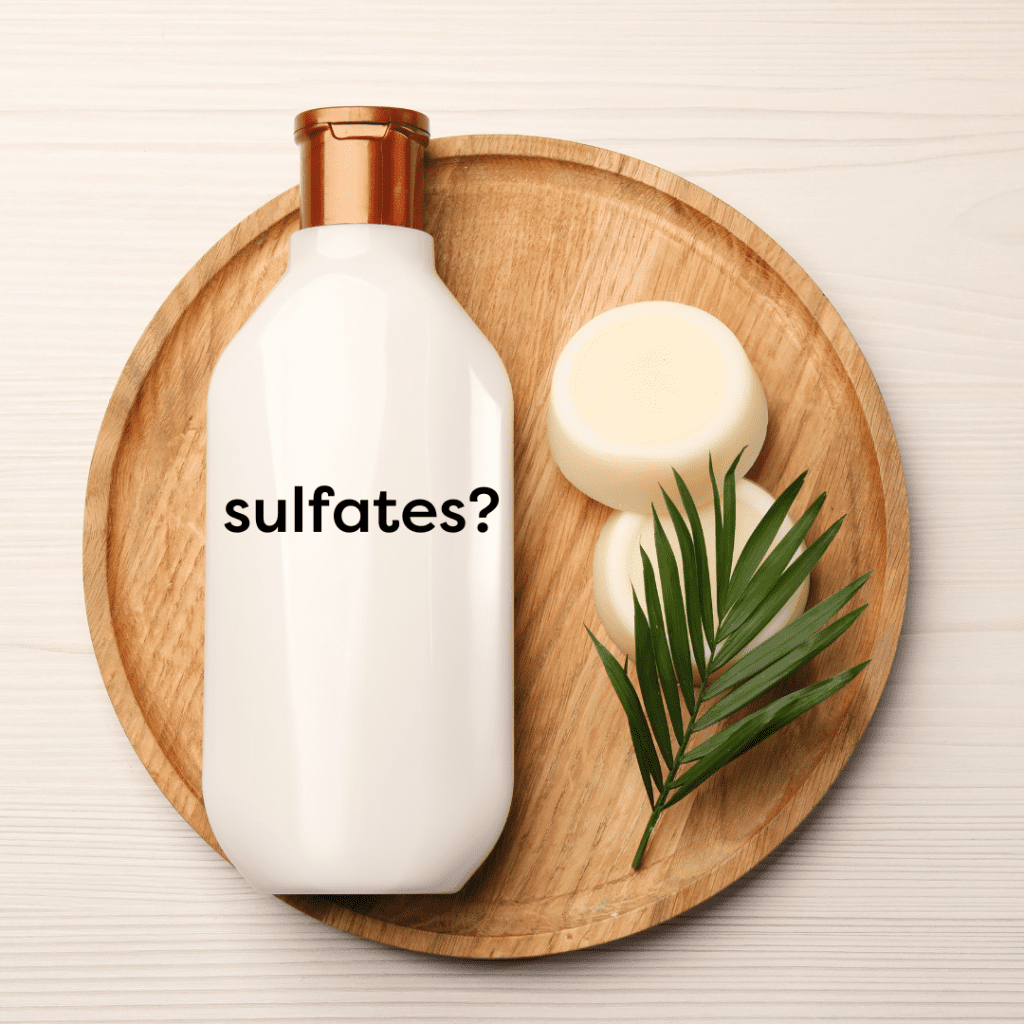As the hair-care industry progresses — thanks, science! — you learn more about what’s safe to slather on your scalp and what you probably ditch at all costs.
That said, some ingredients are hiding on shampoo and conditioner labels that, while not necessarily toxic, get a bad rap for hurting hair health. Sulfates are the most frequent offenders
Sulfate-free shampoos have emerged as the go-to for many seeking gentler hair care. The shift away from sulfate shampoos arises from concerns about scalp irritation and potential skin issues like dermatitis caused by these harsh cleansers. While sulfate-free alternatives offer promises of milder cleansing, it’s crucial to recognize that they might not be the universal solution for everyone’s hair care needs.

In this article, we’ll review the potential risks with SULFATE-FREE shampoos (yes, you’ve heard that right, sulfate-free shampoos are not for everyone)
1. Some sulfate-free surfactants are as harsh as sulfates
Despite being labelled as sulfate-free, numerous drugstore sulfate-free shampoos incorporate Sodium C14-16 Olefin Sulfonate, a surfactant that acts similarly to SLS (Sodium Lauryl Sulfate). This ingredient can exert the same stripping effect on your hair, potentially leading to dryness and dullness.

Sodium C14-16 Olefin Sulfonate is an anionic surfactant commonly found in personal care products like shampoos and cleansers. It functions as a cleansing agent, aiding in the removal of dirt, oil, and impurities from the hair and scalp. This ingredient is known for its effective cleansing properties, but it’s important to note that it can be harsher than some other sulfate alternatives. In terms of its impact on hair, it operates similarly to Sodium Lauryl Sulfate (SLS), known for its strong cleaning abilities, potentially making it more drying and stripping than milder alternatives like Sodium Laureth Sulfate (SLES). Due to its powerful cleansing action, it may cause dryness or irritation for certain hair types or sensitive scalps.
2. Sulfate-free shampoos can make your scalp greasy
Sulfate-free shampoos, while celebrated for their gentle nature, might occasionally leave hair feeling greasy due to their cleansing properties. These shampoos often contain milder cleansing agents that might struggle to remove oil effectively from the hair and scalp. Consequently, residues from natural oils or environmental pollutants might not be adequately washed away, leading to a greasy or weighed-down feeling.

Moreover, in hard water areas where mineral deposits are high, sulfate-free shampoos might not effectively lather or cleanse due to the minerals present, leaving behind a residue that can contribute to the greasy sensation. For individuals with oily hair or those residing in hard water regions, sulfate-free shampoos might not always provide the deep cleansing needed to maintain a non-greasy scalp and hair.
3. Sulfate-free shampoos do not remove product buildup
Unlike their sulfate-containing counterparts, which are known for their strong cleansing properties, sulfate-free formulas utilize milder surfactants that may not adequately break down certain styling products, oils, or residue left from environmental pollutants. This limitation could lead to a buildup over time, resulting in dull, weighed-down hair or an itchy scalp.

While they offer a gentle alternative, individuals who frequently use styling products might find that sulfate-free shampoos don’t eliminate product residues, necessitating occasional clarifying or deep-cleansing treatments to maintain hair freshness and cleanliness.
Sulfate-free shampoos have gained popularity for their promise of gentler cleansing, but they aren’t a one-size-fits-all solution. It’s essential to understand their limitations—potential ingredient similarities to harsh sulfates, inadequate cleansing for certain scalps, and the tendency to leave residues. Finding the right hair care regimen involves understanding your scalp’s specific needs and selecting products that cater to those requirements, whether sulfate-free or not.


